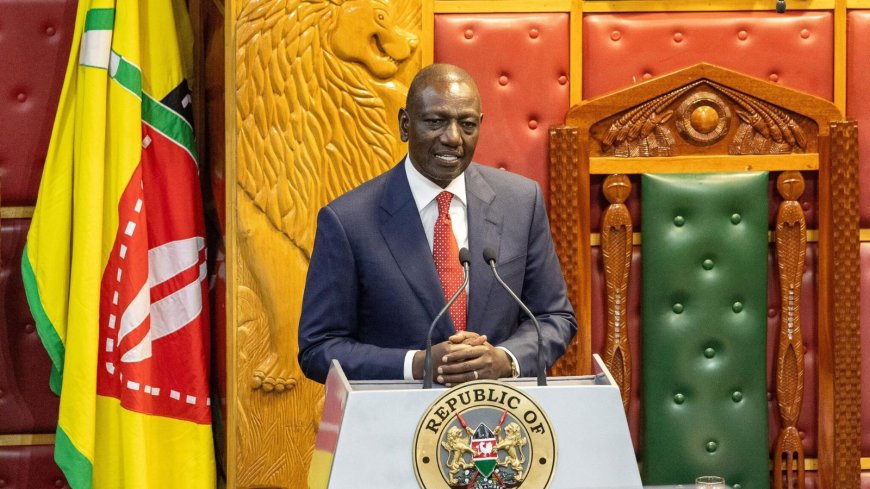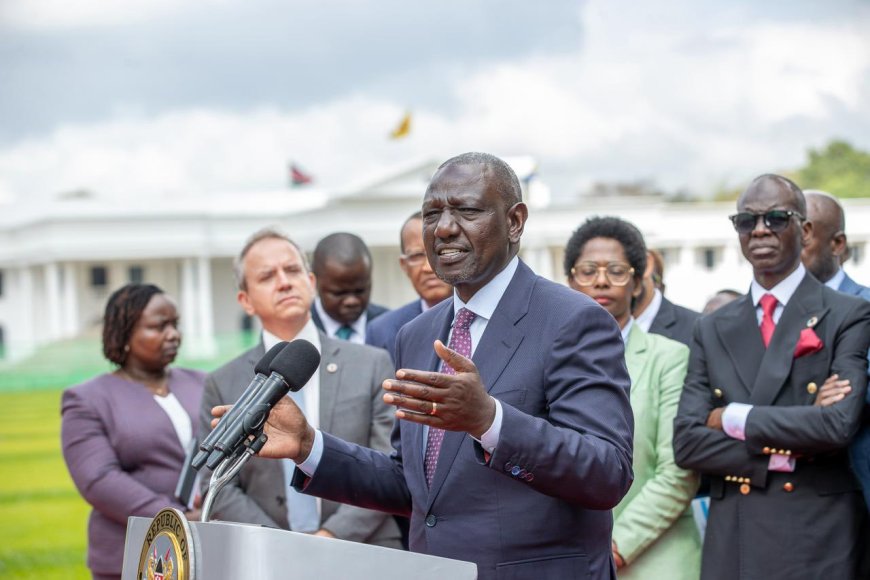No One Is Allowed To Make Falsehoods: Ruto To Critics In State of the Nation Address
The President hit back at the critics, describing them as constant fault-finders who complain but never propose any meaningful alternatives.

President William Ruto, on Thursday, November 20, hinted at cracking down on his critics for spreading misinformation and disinformation regarding his administration, even as his first term is less than two years away from its conclusion.
Speaking during the State of the Nation Address in Parliament buildings, Nairobi, the Head of State referred to his critics as 'the high priests of eternal pessimism', arguing that they don't have a plan better than his.
"Our critics, the high priests of eternal pessimism, who criticize without responsibility and tear down without offering alternatives, will want you to believe that our economy is going in the wrong direction.
"But while everyone may speak their mind, no one is entitled to manufacture self-service falsehoods and traffic them as facts, and facts are exactly what I present here today; clear, verifiable, and indisputable," he addressed.
To prove this, President Ruto opened up on the level of criticism he got regarding his pet Affordable Housing Project, revealing that the skeptics who termed it a fantasy were silent at the sight of reality unfolding before their eyes.
"Three years ago, when we said we would deliver affordable housing, the cynics dismissed it. They said it was a fantasy, when they realized we were serious, they called it impossible. When we broke ground across the country, they suggested that these projects would stall," he continued.
According to the President, public perception had swung in a positive direction, evidenced by the huge demand from Kenyans wanting to own any of the homes in the projects across the country.
"Today, those doubts have given way to a very different question from Kenyans: how do I own one of these units? Across the country, we are delivering the most extensive housing rollout in our history; 230,000 affordable homes," he went on.
Ruto's Ksh5 Trillion First-World Dream
The President further doubled down on Kenya’s push to climb into first-world status — following the path of countries like Singapore, Japan, South Korea, and Malaysia — something he says will demand no less than Ksh5 trillion.
He revealed that his administration will lean on four key priorities to drive the transition: building human capital, reshaping the economy, expanding energy production, and overhauling the transport and logistics network. On the first pillar, he noted that the government must strengthen investments in citizens through education, skills development, scientific training, and innovation.
He said his administration has already laid the groundwork through sweeping education reforms, including raising the sector’s budget from Ksh 490 billion to Ksh 700 billion in four years and expanding STEM programmes to boost innovation and research. The increased funding has supported improved infrastructure, additional teachers and trainers, and higher allocations for colleges and universities.
On economic transformation, the President underscored the need for Kenya to shift from a net importer to a net exporter of goods and services, noting that the country spends about Ksh 500 billion every year on agricultural imports. He pointed out that while measures have been taken to cut imports of maize, sugar, edible oil, rice, and wheat, these gains continue to be limited by the dependence on rain-fed farming.
A major part of the strategy includes constructing 50 mega dams and another 200 medium and small dams to place at least 2.5 million acres under irrigation over the next five to seven years.
Expanding energy production also remains central to the administration’s agenda. Kenya currently generates about 2,300 MW, far short of the 10,000 MW target needed to modernise the economy and support technological growth across key sectors.
The final pillar focuses on improving the transport network by upgrading seaports, airports, highways, and digital corridors to global standards. Efficient logistics, he said, are crucial for boosting competitiveness, supporting development, connecting producers to markets, and positioning Kenya as the aviation and commercial hub of East and Central Africa.
The administration aims to dual 2,500 highways and tarmac 28,000 kilometres of roads over the next decade.







